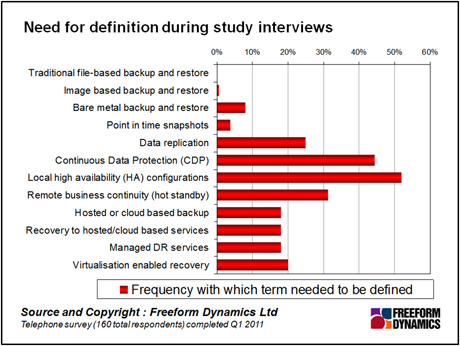In most organisations the acquisition of storage and its associated management tools was, until recently, usually a by-product of a server based project. Such projects were in turn often set up to support a specific application or business requirement. The relatively low profile storage holds has resulted in many organisations running a wide range of disparate platforms, often using an equally diverse portfolio of management tools to administer them individually.
The net result has been that frequently storage platforms are poorly utilised whilst its management is labour intensive and time consuming. But most importantly of all, the cost of running storage is high and the data it holds for the organisation to exploit may not always be held on the most suitable platform to meet the rapidly expanding demands of the business.
It thus makes sense for CIOs to ensure they have a good handle on both what storage solutions they currently employ to support business systems as well as whether investment in new solutions could provide significant benefits. This requirement is not going to change in the near future as the volume of data being generated continues to grow rapidly, especially given that a sizeable number of organisations now report ‘storage costs’ as one of the largest in their IT budgets.
Storage and its management is, for the first time in IT history, becoming visible in its own right and the recognition of its business importance is growing, especially as regulatory requirements surrounding data protection expand.
So what can CIOs do about improving the storage services they deliver to their organisations? The starting point in many cases is simply to do an audit of what platforms are being used, how much capacity is unutilised and, the most difficult question, identifying just what data is being held. Following this, resources, probably people, must be allocated to classify and categorise what is being held to allow decisions to be made.
IT is worthwhile noting that our work over many years and our decades of professional experience indicates that many organisations have anything but a good idea of just what storage platforms they have operational or how effectively they are being utilised. More importantly, few are confident they have accurate, and up to date, knowledge of just what data they hold on each system, its value to the business, how it should be protected and how long it should be retained. Even fewer report they have a good handle on what service quality performance is required of individual data sets and whether those service quality metrics are being delivered.
So getting hold of this core ‘inventory’ and ‘asset’ data is an important first step. After gathering this basic information, the CIO can explore the ever-diversifying portfolio of sophisticated storage solutions being brought to market. But this task is not as easy as it sounds, even to storage specialists, of whom there are few. Indeed, even IT staff involved in the daily operation of systems often have only a limited grasp of what new storage solutions are available, where they might be useful and what business advantages they could deliver.

Figure 1
For example, last year Freeform Dynamics carried out a survey of small businesses in the UK looking at disaster recovery. One of the most interesting discoveries was that only a small percentage of IT professionals interviewed were comfortable in their knowledge of new storage solutions (Figure 1). Conversations with people who work for larger organisations indicates that even in bigger businesses the level of understanding of new storage solutions, the problems they address and how to make a business case for their acquisition is not that high.
This comparatively low level of understanding also places a burden on IT vendors to communicate more clearly concerning the merits of their solutions in the context of how they help address business challenges rather than simply supplying a list of technical features.
This begs the question, are vendors helping CIOs understand how to use the latest technology and services they are bringing to market? In truth, many vendors of storage platforms have done little effectively to help provide such information. CIOs therefore need to demand that their suppliers talk about sophisticated storage systems such as deduplication, tiered storage, encryption, archiving and content management in the language of business value rather than in technical jargon.
Feedback from several surveys indicates that many IT departments are now actively undertaking significant storage developments, especially centred on raising utilisation rates and improving flexible access to the copious amounts of data they are gathering. Here is an opportunity for vendors to provide good heterogeneous management tools as well as delivering capability to help discover and categorise business information and in turn allow automatic centralised policy management of information storage to take place.
Over the next few weeks, The Freeform Dynamics team is going to be doing the rounds of the big storage and information management players and reviewing just how well they delivering against what’s really required. We know we are going to have to sit through endless presentations on the latest hot topic, big data, but rest assured that along the way we will be quizzing vendors hard on how they are dealing with some of the more fundamental challenges facing CIOs and their teams in this important area of IT.
We’ll report back on the results of our discussions in due course, so watch this space for rundown of what we learn.
CLICK HERE TO VIEW ORIGINAL PUBLISHED ON
